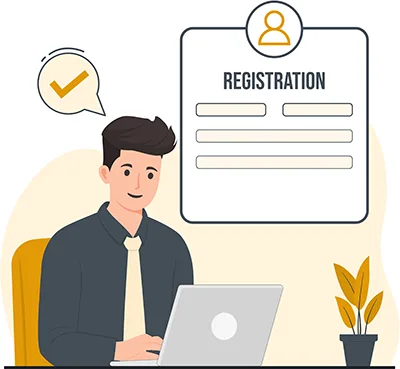Emotional Intelligence
The essential ingredient for a healthier, happier and successful life
Course Description
In today’s fast-paced world, success is often measured by tangible achievements and professional accomplishments. But, true success encompasses much more: a deep understanding and mastery of emotions, and the ability to navigate the complex landscape of human relationships with empathy, resilience, authenticity. Emotional intelligence (EQ) is the cornerstone of personal and professional growth.
Participants will learn how to recognise and manage their own emotions, as well as understand and influence the emotions of their students in a positive and constructive manner.
Specifically, the training course will focus on the following:
Introduction to Emotional Intelligence (EQ)
Defining EQ and its significance in personal and professional success. Historical context and evolution of the concept
Components of Emotional Intelligence
Self-awareness, Self-regulation, Motivation, Empathy Social skills
The Science Behind Emotional Intelligence
Neurobiology and emotions. How emotions influence behavior and decision-making
The Foundation of Emotional Intelligence
Recognising and understanding our own emotions. Identifying emotional triggers and patterns
Tools and Techniques for Self-Reflection
Journaling and self-assessment exercises. Mindfulness and meditation practices
Emotion Regulation Strategies
Techniques to manage and control intense emotions. Coping mechanisms for stress and anxiety
Impulse Control and Decision-Making
Making rational choices in the heat of the moment. Avoiding impulsive reactions
Understanding Empathy
Empathy as a bridge to understanding others. Differentiating between sympathy and empathy
Active Listening and Non-Verbal Communication
Techniques for truly hearing and comprehending others. Reading body language and facial expression
Building and Nurturing Relationships
Communication skills for effective interactions. Conflict resolution and negotiation technique
Training Program

Day Activities
- Welcome addressed to the participants by management
- Course outline
- Ice-breaking activities
- Introduction to the theory of Emotional Intelligence
- Discussion on the 5 components of EQ

Day Activities
- Interactive activities on self-awareness, feelings acknowledgment, embrace yourself
- Learn your strengths and weaknesses
- Anger Management
- Pay attention to your body

Day Activities
- Recognition of the value of self-regulation
- How to motivate ourselves
- Setting smart goals
- Practicing meditation and Emotional Freedom technique (EFT)

Day Activities
- Learning about empathy
- Practicing how to be a great listener
- Practicing our communication skills

Day Activities
- Final activities
- Evaluation of the course
- Diploma awarding
Learning Objectives
- Define Emotional Intelligence (EQ) and its components
- Recognise the significance of EQ in personal and professional success
- Understand the neurological basis of emotions and their impact on behavior
- Identify and label personal emotions accurately
- Recognise emotional triggers and patterns
- Apply self-reflection techniques for improved self-awareness
- Implement strategies to manage intense emotions effectively
- Demonstrate impulse control in decision-making
- Employ stress management techniques for improved self-regulation
- Understand the concept of empathy and its importance in relationships
- Utilize active listening skills to comprehend others' perspectives
- Differentiate between intrinsic and extrinsic motivation
- Set meaningful, achievable goals aligned with personal values
- Develop strategies to maintain motivation and overcome obstacles
Methodology
Interactive Workshops
Engaging in group activities & discussions to encourage active participation and application of concepts.
Case Studies & Scenarios
Real-world situations to analyse and apply emotional intelligence principles in various contexts.
Role-Playing Exercises
Simulated scenarios to practice empathy, active listening, and conflict resolution skills.
Self-Assesment Tools
Questionnaires and reflective exercised to help participants gauge their own emotional intelligence levels & progress
Upcoming Sessions
| Start Date | End Date |
|---|---|
| 17 Nov 2025 | 21 Nov 2025 |
| 8 Dec 2025 | 12 Dec 2025 |
| 19 Jan 2026 | 23 Jan 2026 |
| 9 Feb 2026 | 13 Feb 2026 |
| 9 Mar 2026 | 13 Mar 2026 |
| 20 Apr 2026 | 24 Apr 2026 |
| 25 May 2026 | 29 May 2026 |
| 22 Jun 2026 | 26 Jun 2026 |
| 20 Jul 2026 | 24 Jul 2026 |
| 14 Sep 2026 | 18 Sep 2026 |
| 19 Oct 2026 | 23 Oct 2026 |
| 16 Nov 2026 | 20 Nov 2026 |
| 30 Nov 2026 | 4 Dec 2026 |

Course Packages
Bronze
Silver
Trusted By
FAQs
How can I register for the Course I have chosen?
Complete the contact form and our Erasmus coordinator will guide you through the registration process.
Where can I apply for E.U funding?
You must talk to the Erasmus coordinator of your school / organisation. This is the responsible person to apply for a fund for your mobility.
Can I pay for the fees myself if I do not receive a fund?
Yes, this is also possible. You can pay for the expenses yourself.
Where will the participants meet for the Courses? / What’s the company’s address?
It’s 4 Michail Georgalla, Engomi 2409, Nicosia, Cyprus
Does the Company offer sightseeing services? Like trips to places of interest?
Stando can give information and ideas for trips around the island or places to eat but we do not organize these trips outside the schedule of our Courses. There are however planned trips scheduled, as part of our Outdoor Courses; just have a look at the Outdoor Course detailed program or ask the Erasmus coordinator for the schedule to be sent to you.
Which hotel do you work with?
We collaborate with ASTY hotel. Its address is: 12 Prinkipos Karolou, 2373, Ayios Dometios, Nicosia, Cyprus
Can I book extra nights at the hotel?
Certainly, at an extra charge. It’s price depending whether you choose a Single, Twin or Triple room.
Are there any transport services from the airports?
Yes, apart from private taxis, an affordable service is “Kapnos Airport Shuttle”: You can book your transfer online to Nicosia from Larnaka and Paphos airport. You need to go onto their website, register and book your route.
There’s also a desk of their office at the airports, in case of flight changes:
https://kapnosairportshuttle.com/routes/4/en/1
Who provides the learning agreement between the hosting and the sending organisations?
Your Erasmus coordinator is responsible for providing you with the agreement, which needs to be filled with your personal and school information. After this is completed, you must send it to our Erasmus coordinator (standoutedu@standoltd.com) who will complete all remaining information and send it back to you signed. We also keep a copy of that for record purposes.
What’s the difference between an Indoor and an Outdoor Course?
An indoor Course takes place at the Organisation’s premises whereas an Outdoor Course has Outdoor Venues depending on the Schedule for each Course. More details on our website under each Course specifications.
What’s STANDO’s OID number?
It’s E10168250
Talk To Us!
Fill out the form to express your interest or ask questions. Our training coordinator will provide details and guide you through the application process. We look forward to welcoming you!